Cleaning and sealing marble countertops is an essential task for maintaining the beauty and longevity of this luxurious material. Marble, known for its elegance and timeless appeal, requires careful and consistent care to preserve its polished surface and prevent damage. This involves a routine of cleaning to remove spills and stains, as well as sealing to protect the porous stone from absorbing liquids and oils that can lead to stains. Each of these tasks requires specific products and techniques to ensure the marble remains in optimal condition.
When cleaning marble countertops, it’s crucial to use pH-neutral cleaners. Marble is sensitive to acidic substances, which can cause etching and dullness. Avoid using common household cleaners like vinegar, lemon juice, or abrasive scrubbers, as these can damage the surface. Instead, opt for cleaners specifically formulated for marble or mild dish soap diluted in warm water. Gently wipe the surface with a soft cloth or sponge, ensuring not scrub harshly. For tougher stains, a baking soda paste can be applied, left to sit for a few hours, and then wiped off gently. Always rinse the surface with clean water and dry it thoroughly to prevent water spots.
Sealing marble countertops is a critical step that should not be overlooked. Marble is a porous stone, meaning it can absorb liquids and oils, leading to stains and discoloration. Sealing creates a protective barrier that reduces the stone’s permeability. The frequency of sealing depends on the type of marble and its usage, but generally, it should be done every 6 to 12 months. To seal the countertop, first ensure it is thoroughly cleaned and completely dry. Apply a high-quality marble sealer using a soft cloth, following the manufacturer’s instructions. Typically, this involves spreading an even layer of the sealer, allowing it to penetrate the stone for a specified period, and then wiping off any excess.
It’s important to test the effectiveness of the seal regularly. A simple water test can determine if your countertop needs resealing. Pour a small amount of water onto the surface and observe it for 15 minutes. If the water beads up, the seal is still effective. If it soaks into the marble, it’s time to reapply the sealer. Consistently maintaining the seal helps protect against stains and makes daily cleaning easier.

In addition to sealing, prevention is key to maintaining marble countertops. Use coasters under glasses, especially those containing acidic beverages like wine, coffee, or citrus juices. Always use cutting boards to prevent scratches and avoid placing hot pots and pans directly on the marble, as this can cause thermal shock and damage the stone. Wipe up spills immediately, especially those from oil, wine, and acidic substances, to prevent them from penetrating the surface and causing stains.
Another aspect of marble care is regular dusting and polishing. Dusting with a microfiber cloth can prevent the buildup of dirt and grime that can dull the surface over time. Polishing with a marble polish can help restore the stone’s shine and provide an additional layer of protection. However, it’s important not to over-polish, as this can lead to a buildup of residues that may attract more dirt.
For deeper cleaning, consider using a poultice for stubborn stains. A poultice is a paste made from a cleaning agent and an absorbent material like kaolin clay or diatomaceous earth. Apply the poultice to the stained area, cover it with plastic wrap, and let it sit for 24 to 48 hours. The paste will draw out the stain from the marble. Afterward, remove the poultice, rinse the area, and dry it thoroughly.
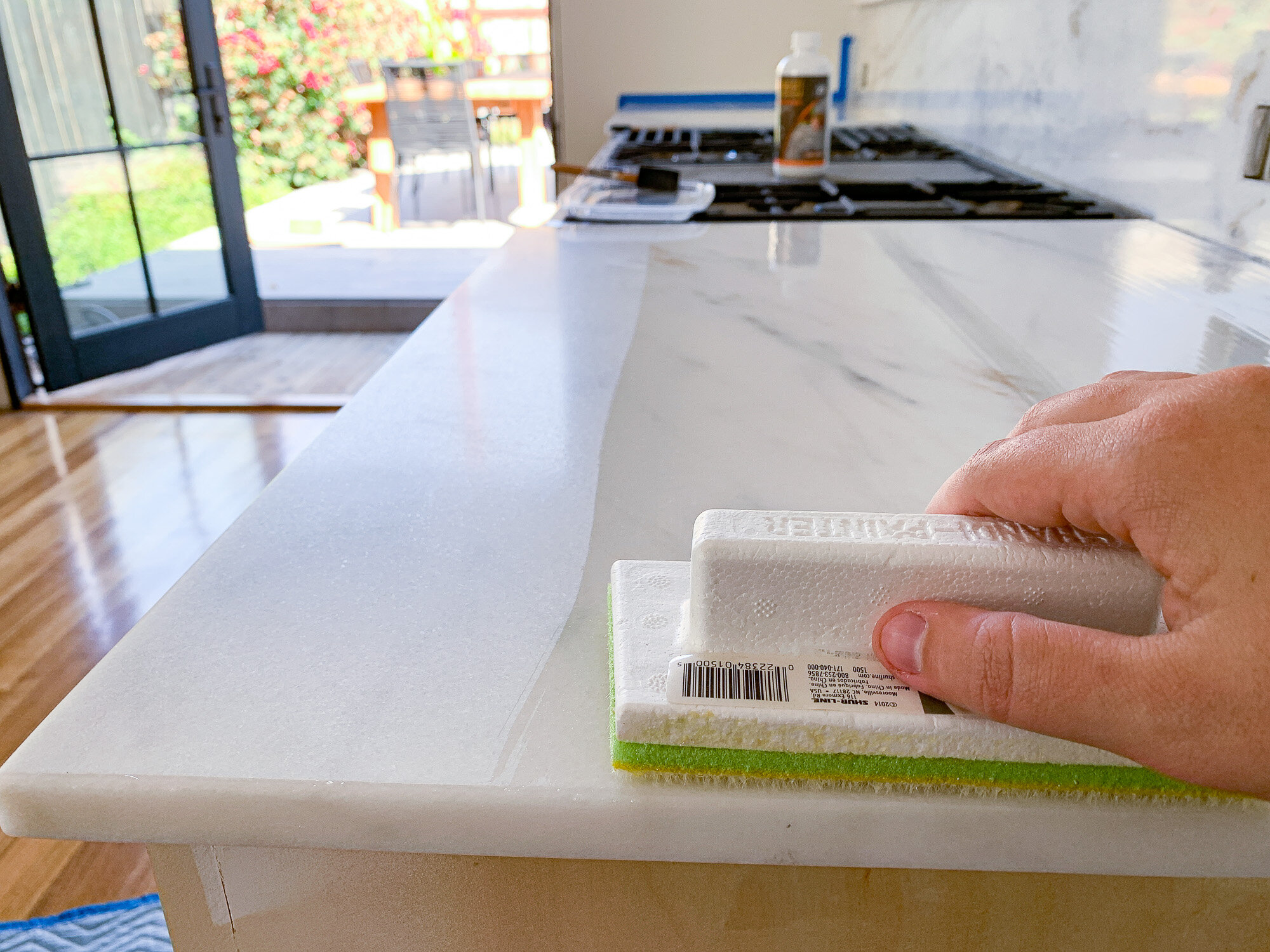
Maintaining the grout between marble tiles is equally important. Grout can absorb stains and harbor bacteria. Clean the grout lines with a gentle cleaner and a soft brush, avoiding harsh chemicals that can damage the marble. Sealing the grout along with the marble can provide additional protection against moisture and stains.
When choosing cleaning products, it’s essential to avoid those containing bleach or ammonia, as these chemicals can degrade the sealant and etch the marble. Even natural cleaners should be used cautiously, as some can be surprisingly acidic. Always check the labels and, when in doubt, consult with a professional or the marble supplier.
Professional maintenance is also an option for marble countertops. Stone care specialists can provide deep cleaning, polishing, and resealing services that might be difficult to achieve with over-the-counter products. Regular professional care can extend the life of your marble countertops and keep them looking pristine.
Understanding the nature of marble is fundamental to its care. Marble is a metamorphic rock composed of recrystallized carbonate minerals, which makes it susceptible to acids and abrasions. Its beauty lies in its unique veining and natural variations, which can also present challenges in uniform maintenance. Being aware of these characteristics can help in choosing the right care products and methods.
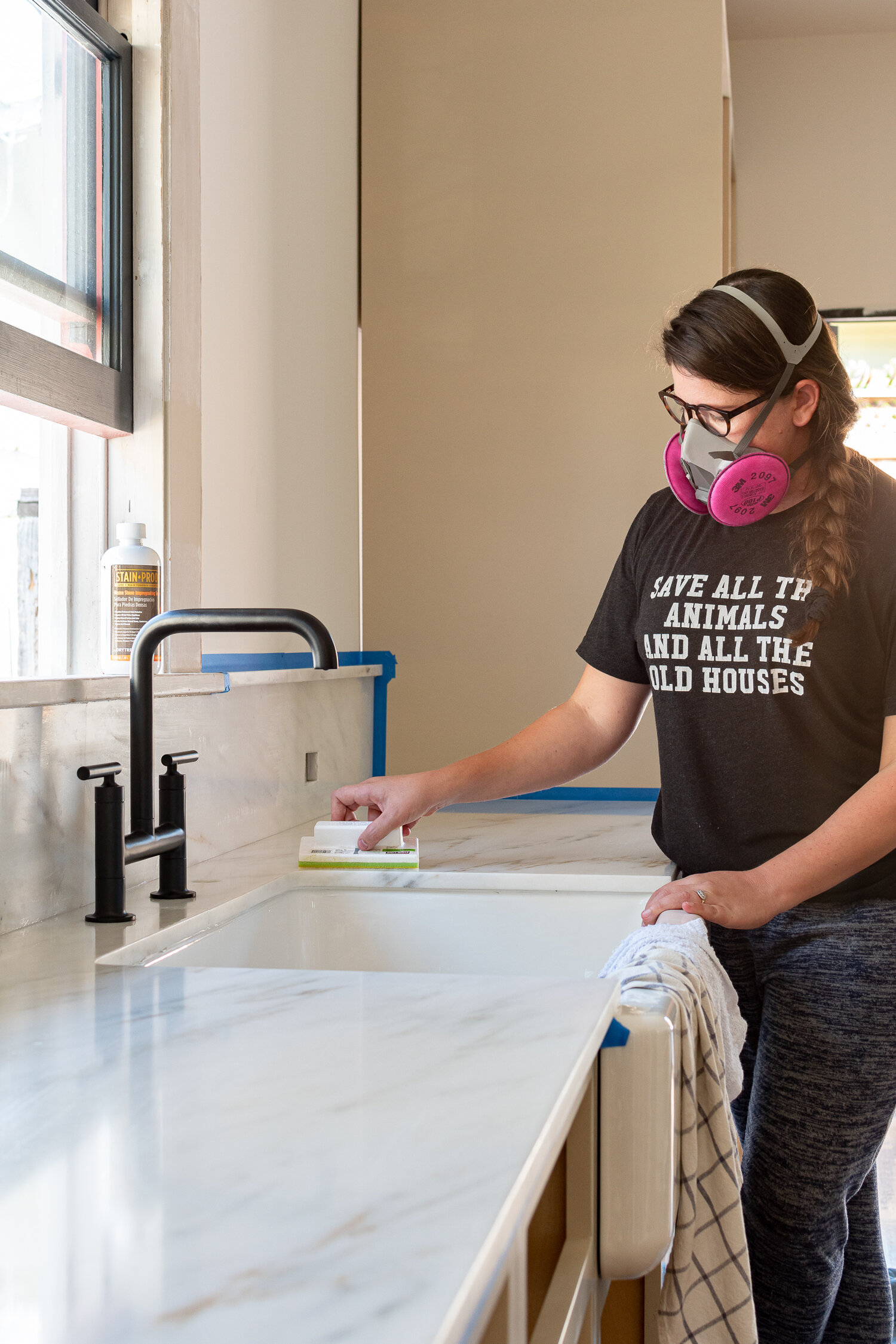
Environmental factors also play a role in marble maintenance. Exposure to sunlight can fade some types of marble, so consider the placement of your countertops and the use of protective coverings or window treatments. Humidity and temperature fluctuations can affect the stone, so maintaining a stable environment helps preserve its integrity.
Educating everyone in the household about proper marble care is beneficial. Children and guests might not be aware of the delicate nature of marble surfaces, so providing guidance on what substances to avoid and how to handle spills can prevent accidental damage. Clear communication can help maintain the countertop’s condition over time.
In summary, cleaning and sealing marble countertops require a thoughtful approach and regular maintenance. Using the right products, techniques, and preventive measures can preserve the elegance and functionality of marble for years. Each step, from daily cleaning to periodic sealing, plays a crucial role in maintaining the pristine appearance of this timeless stone.

Common Mistakes to Avoid
One common mistake is using the wrong cleaning products. Many people inadvertently use acidic or abrasive cleaners that can cause etching and dullness. Always ensure the cleaner is pH-neutral and specifically designed for marble.
Another mistake is neglecting to seal the marble. Failing to seal regularly can lead to deep stains that are difficult to remove. Consistently applying a high-quality sealer is vital to protect the stone’s surface.
Ignoring spills is another error. Allowing substances, especially acidic or oily ones, to sit on the marble can cause permanent stains. Immediate cleanup of spills is essential to maintain the stone’s appearance.
Over-polishing can also be detrimental. While polishing can enhance the shine, too much can result in a buildup of residue that attracts dirt. Polishing should be done sparingly and according to the manufacturer’s recommendations.
Lastly, using the marble countertop as a cutting board is a frequent mistake. This can cause scratches and etching. Always use a separate cutting board to protect the marble surface from damage.
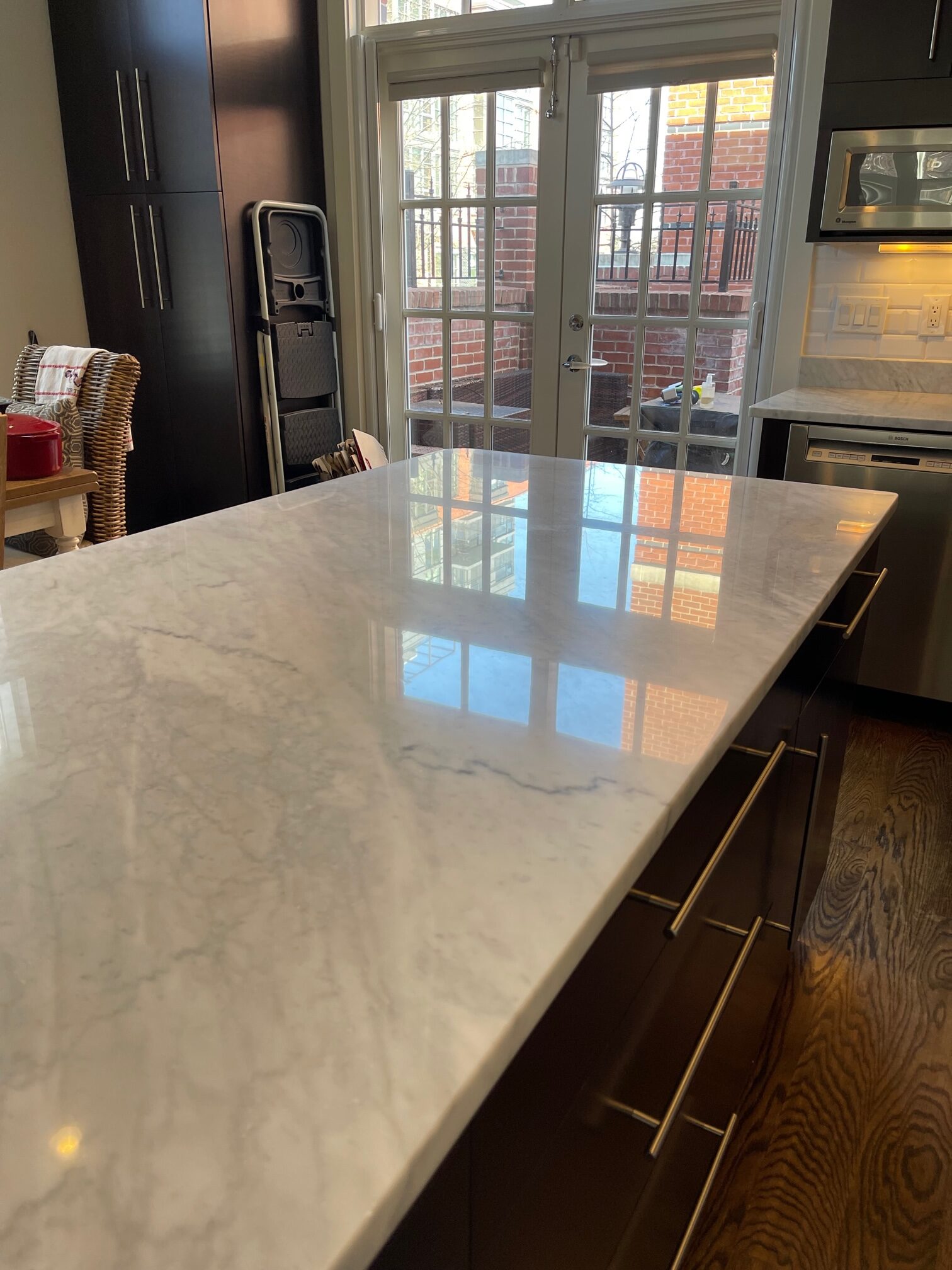
How often should I seal my marble countertops?
Sealing marble countertops should generally be done every 6 to 12 months. The exact frequency depends on the type of marble and its usage. High-traffic areas or countertops exposed to frequent spills may require more frequent sealing. Performing a simple water test can help determine if resealing is needed: pour a small amount of water on the countertop and observe if it beads up or is absorbed. If the water is absorbed, it’s time to reapply the sealer.
What is the best way to clean marble countertops daily?
For daily cleaning, use a pH-neutral cleaner or a mild dish soap diluted in warm water. Avoid using acidic or abrasive cleaners, as these can damage the marble surface. Gently wipe the countertop with a soft cloth or sponge, and always rinse with clean water and dry thoroughly to prevent water spots. Regular dusting with a microfiber cloth can also help maintain the marble’s shine and prevent the buildup of dirt and grime.
Can I use vinegar or lemon juice to clean marble?
No, vinegar, lemon juice, and other acidic substances should never be used on marble countertops. The acidity can etch the marble, causing dull spots and potentially permanent damage. It’s crucial to use only pH-neutral cleaners or products specifically designed for marble to ensure the surface remains intact and beautiful.
What should I do if my marble countertop gets stained?
For marble stains, a poultice can be very effective. A poultice is a paste made from a cleaning agent and an absorbent material like kaolin clay or diatomaceous earth. Apply the poultice to the stained area, cover it with plastic wrap, and let it sit for 24 to 48 hours. This process allows the poultice to draw out the stain from the marble. Afterward, remove the poultice, rinse the area with water, and dry it thoroughly. For persistent stains, consulting a professional may be necessary.
Is professional maintenance necessary for marble countertops?
While regular home maintenance is essential, professional care can significantly enhance the longevity and appearance of marble countertops. Stone care specialists offer deep cleaning, polishing, and resealing services that may be difficult to achieve with standard household products. Periodic professional maintenance ensures that the marble retains its beauty and durability over time, addressing issues that might be beyond the scope of regular home care.
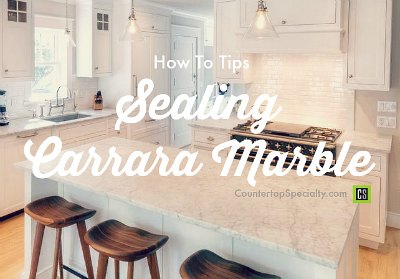
How to Seal a Marble Countertop
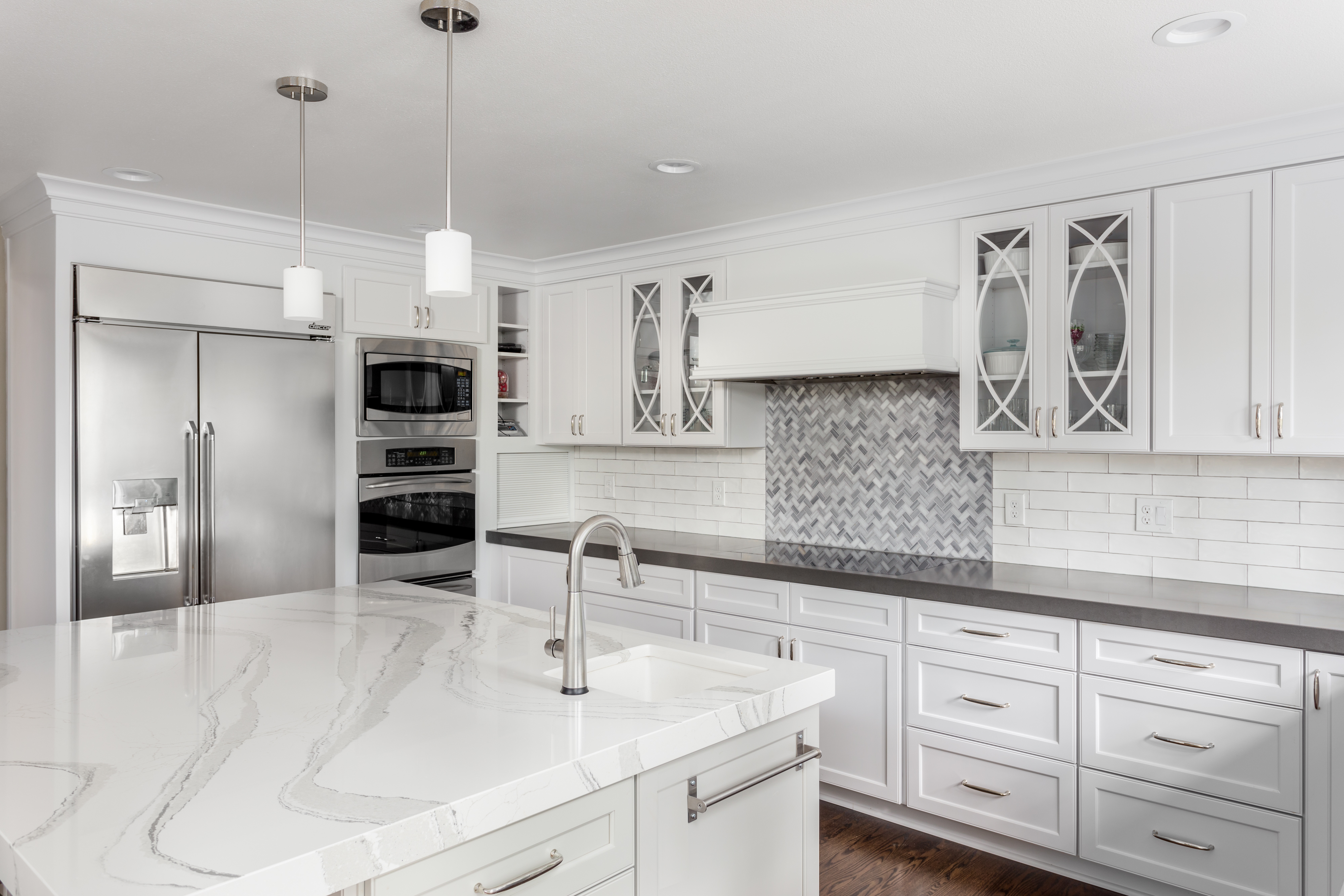
Stone Care: Marble and Granite Countertop Sealing/Cleaning Kit

A Simple DIY Test Takes the Guesswork out of Sealing Marble
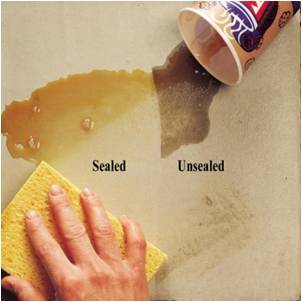
Easy Ways to Clean Granite Countertops
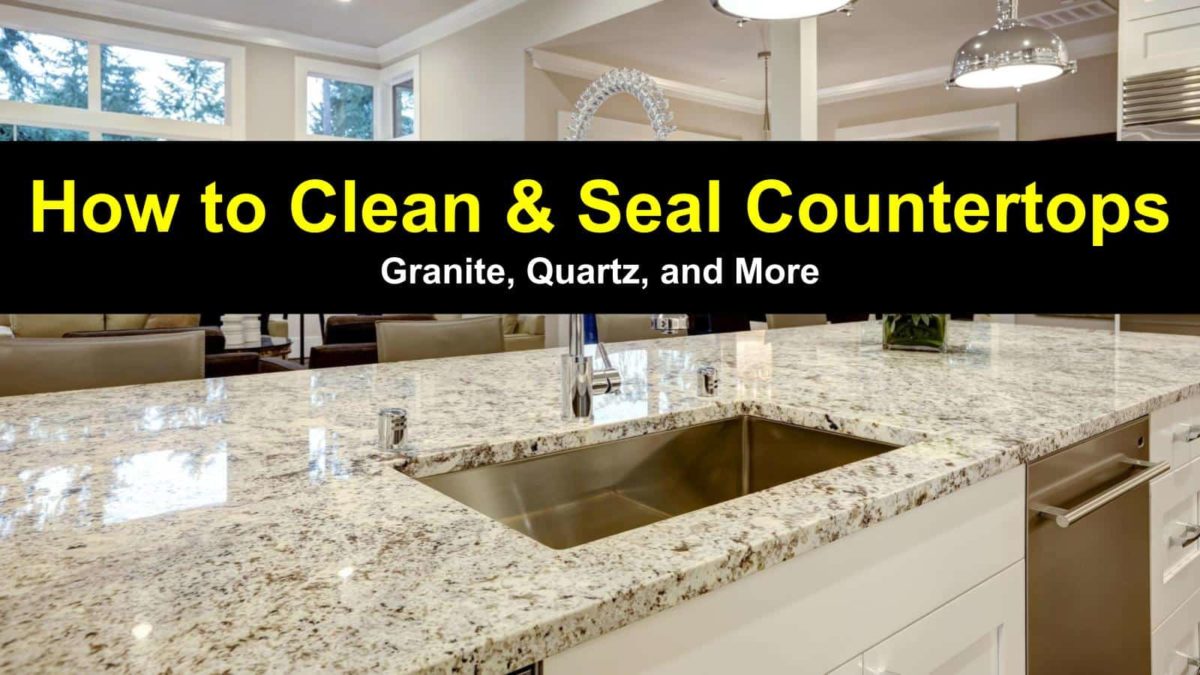
Vanity, Countertop Cleaning and Sealing
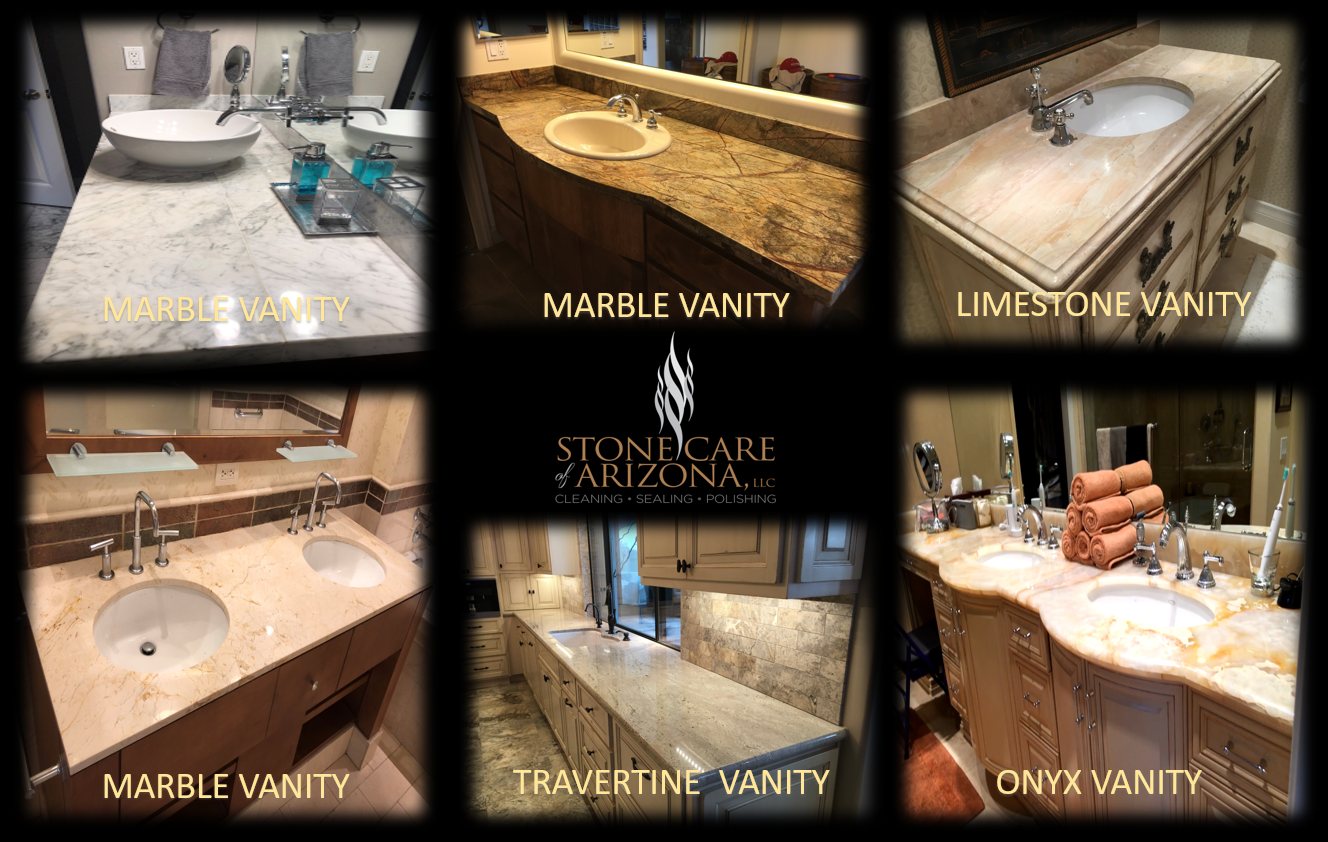
Related articles:
- Marble Countertops Backsplash
- DIY Refinishing Cultured Marble Countertops
- Marble Countertops In Bathrooms
- Cultured Marble Countertops
- Gray Kitchen Cabinets Marble Countertops
- Modern Kitchen Marble Countertops
- Refinish Cultured Marble Countertop
- Carrara Marble Countertops Bathroom
- Marble Countertops Types
- How To Refinish Marble Countertops